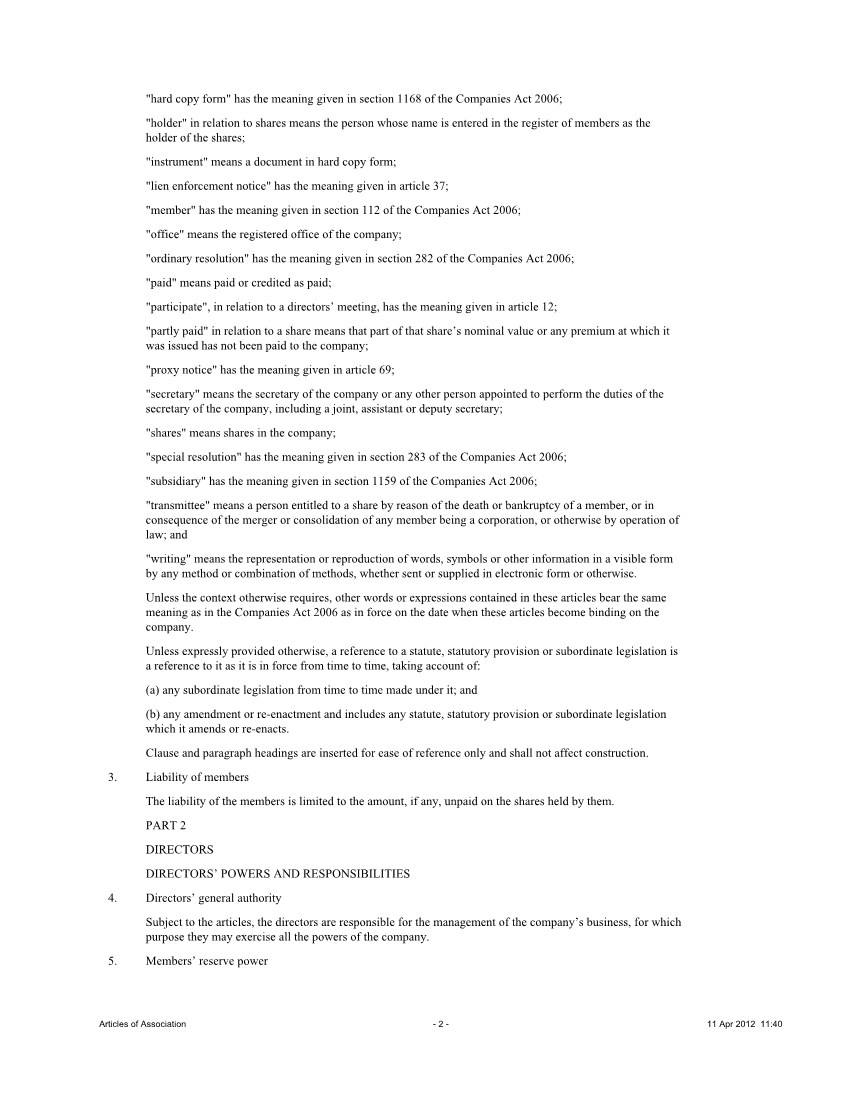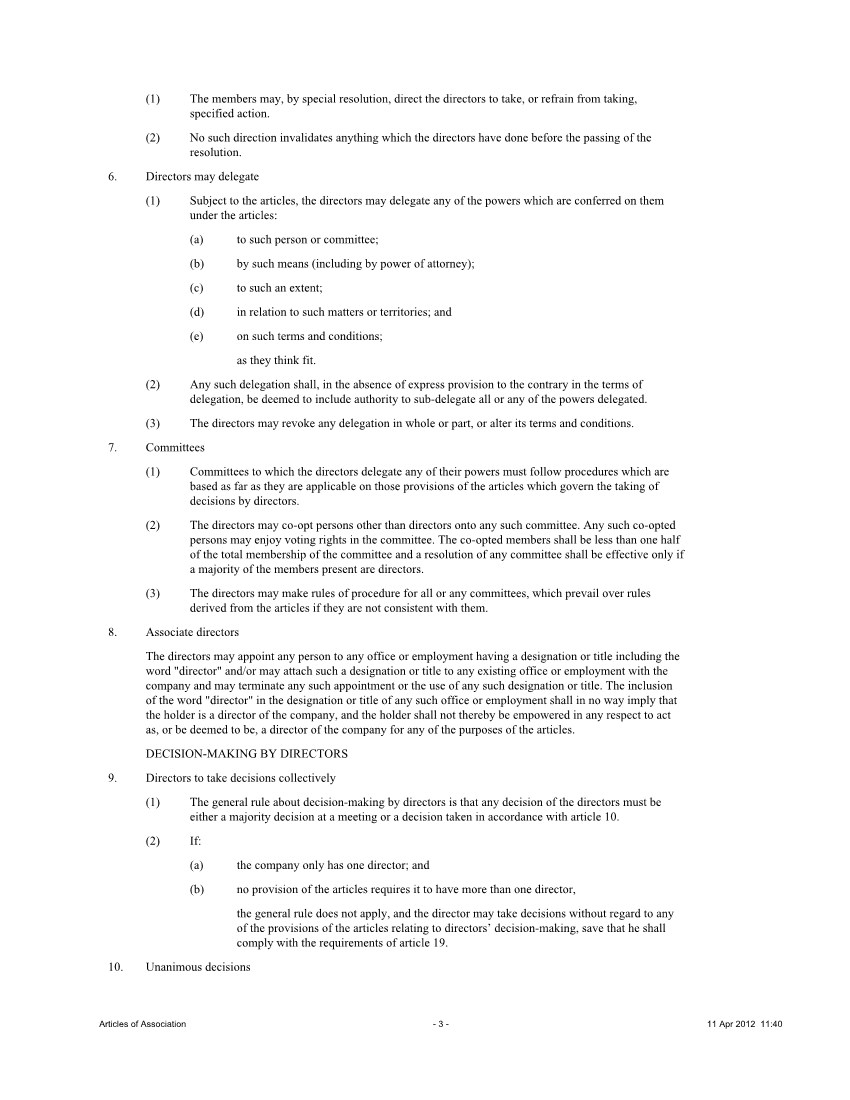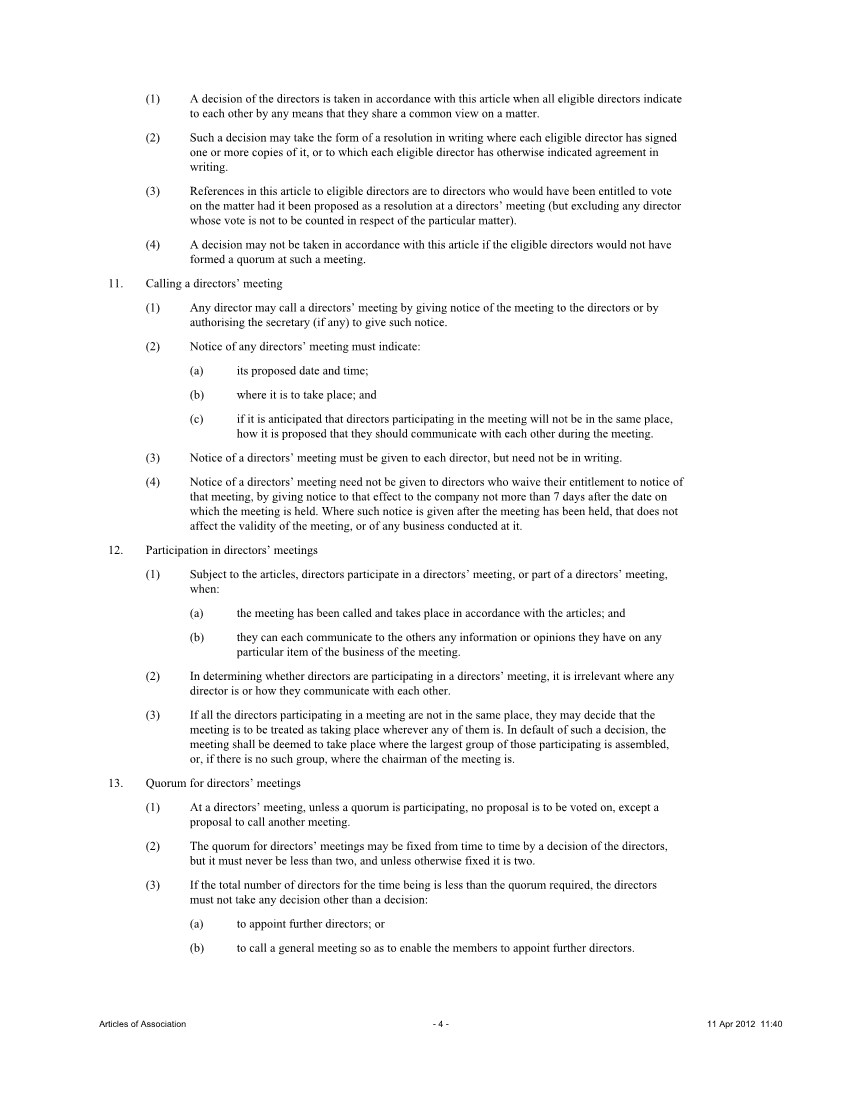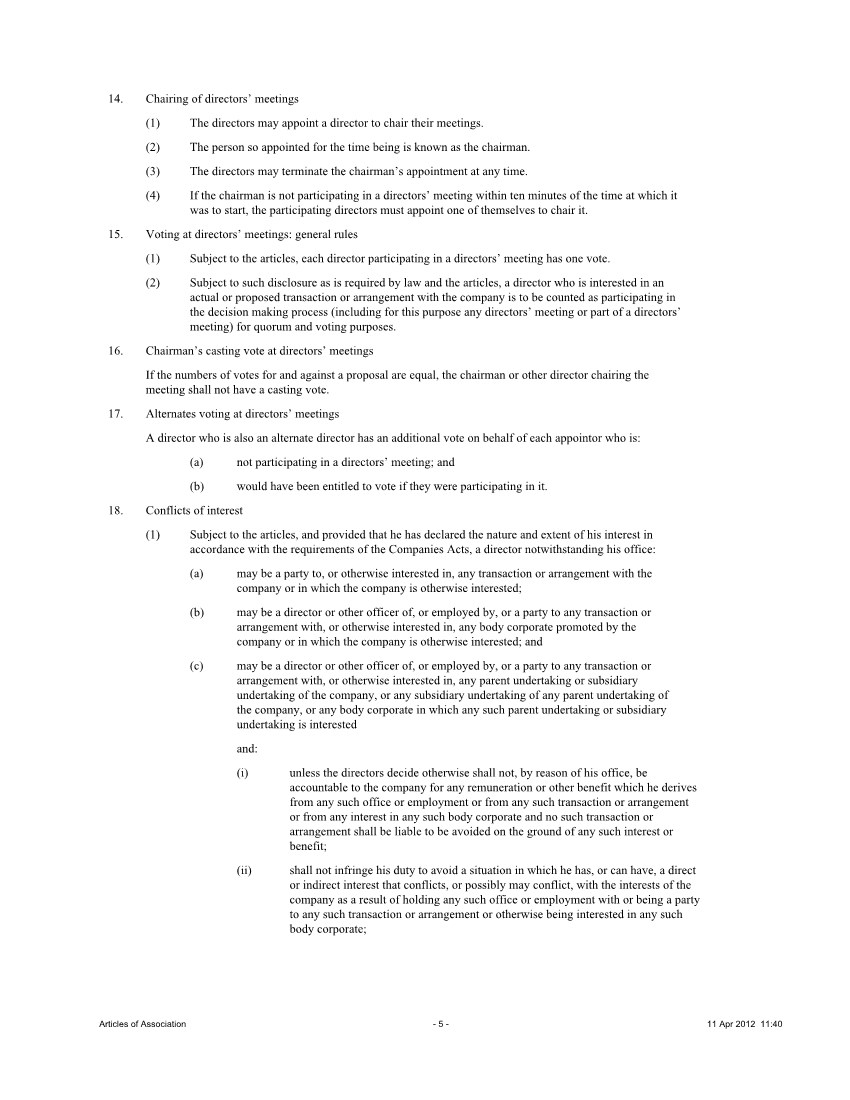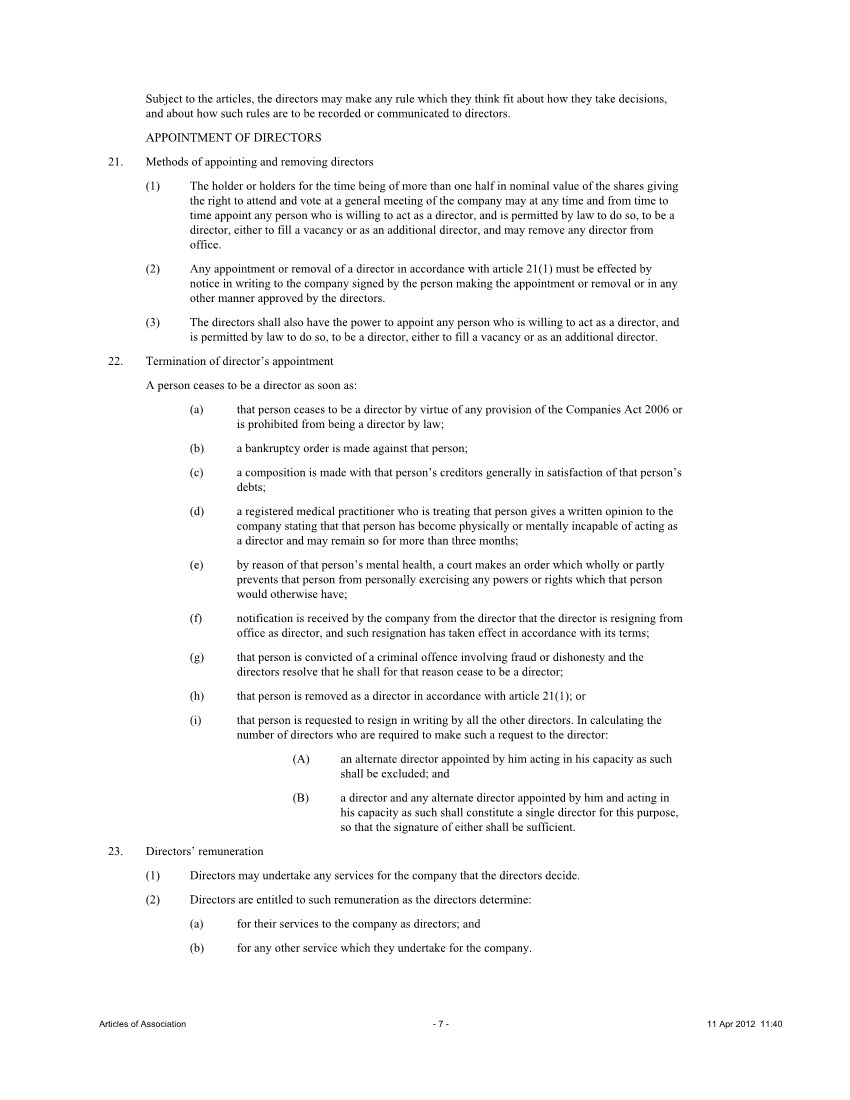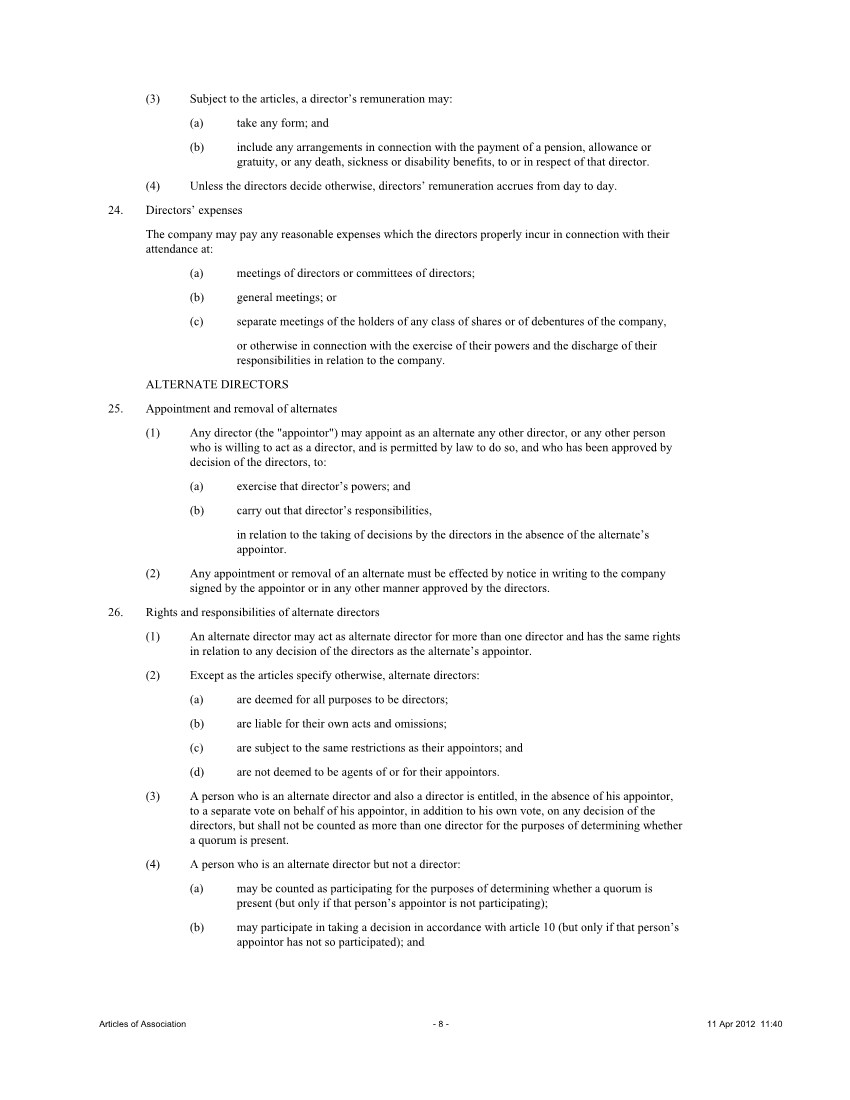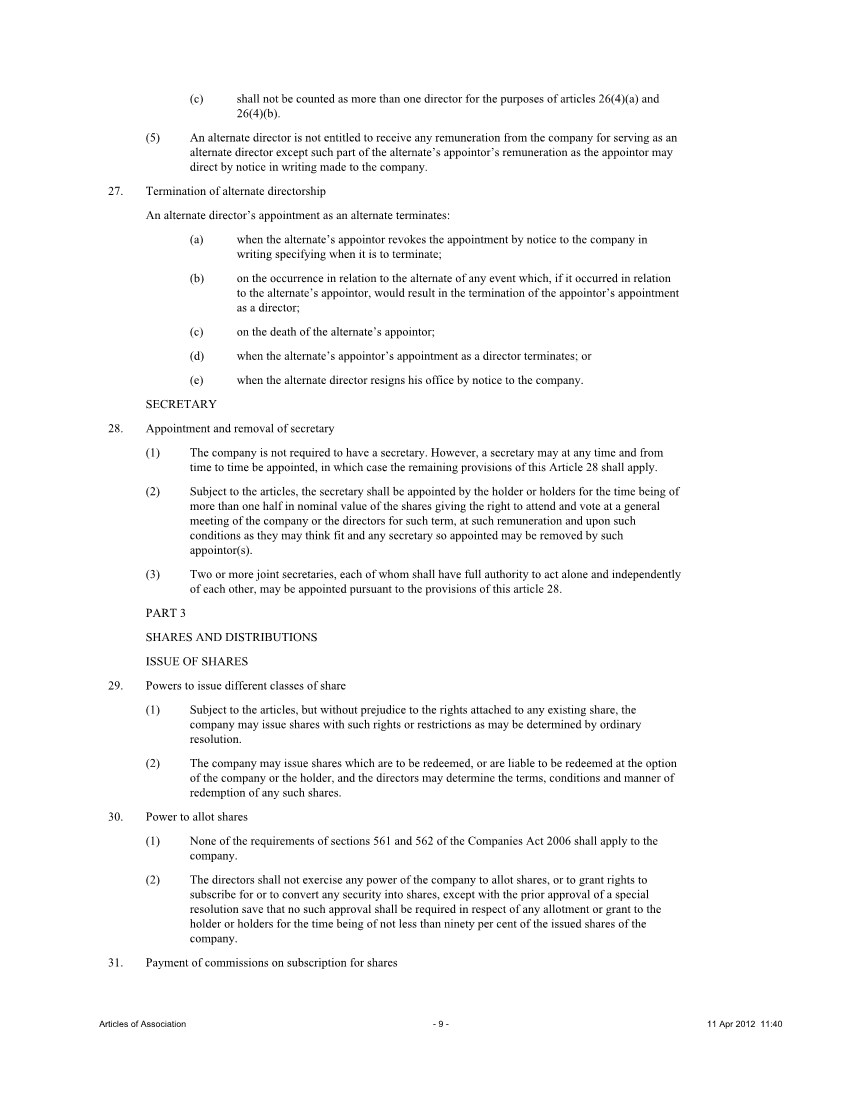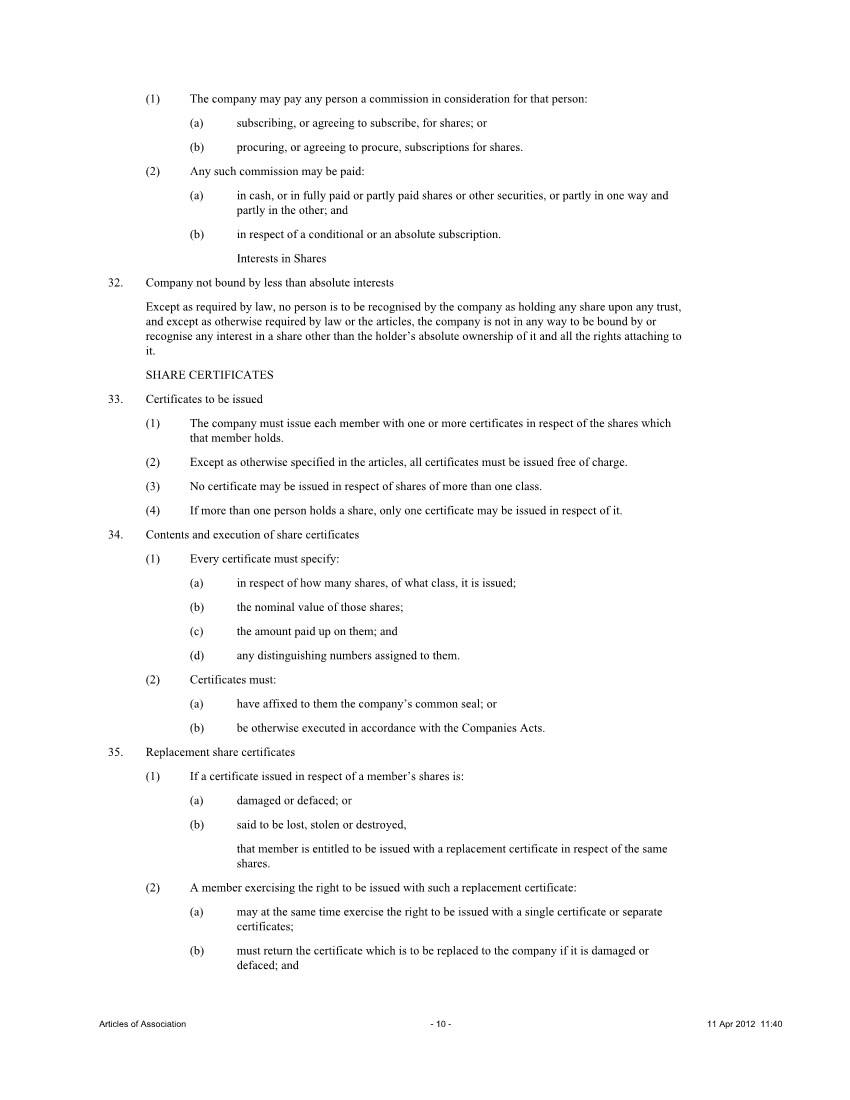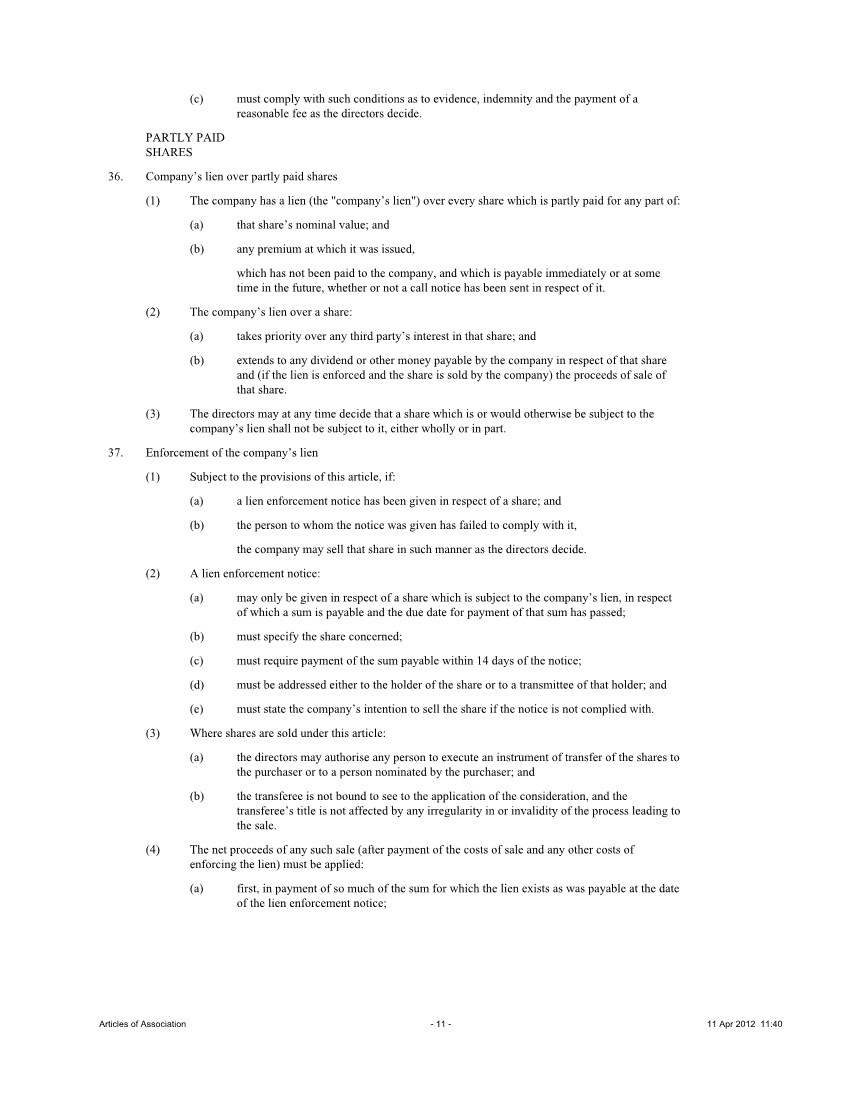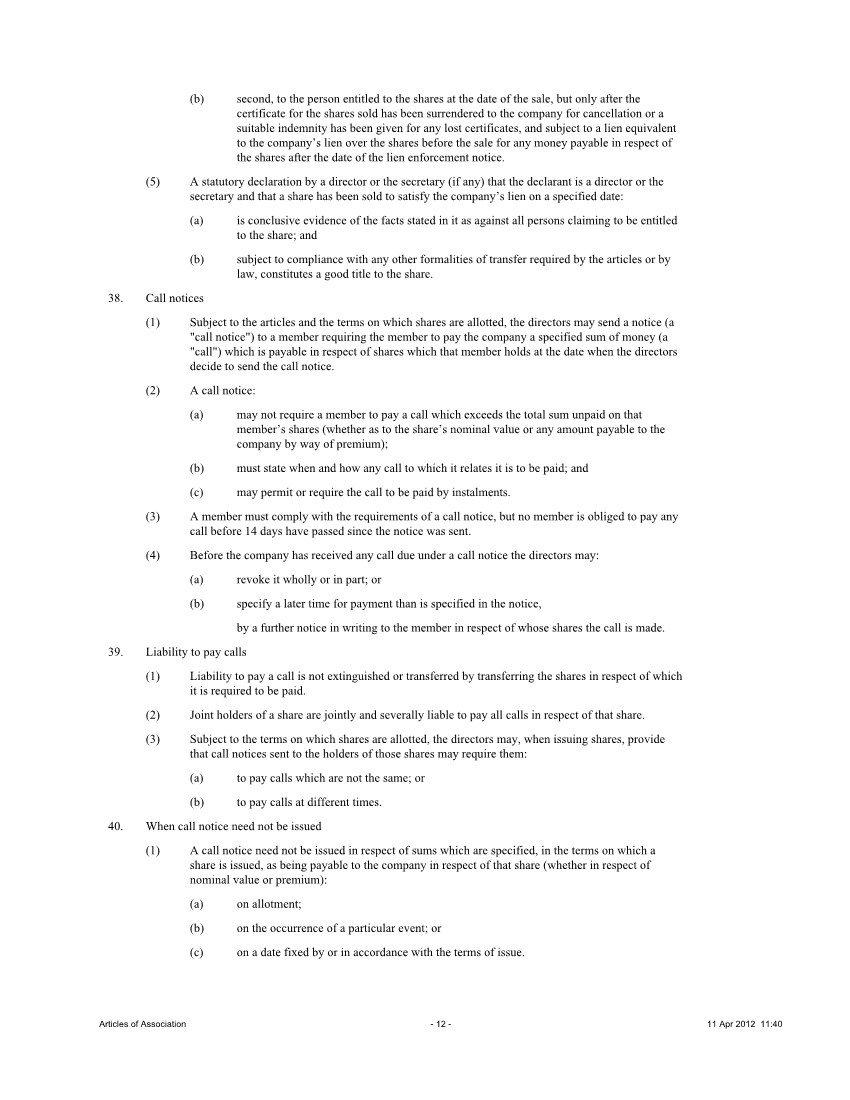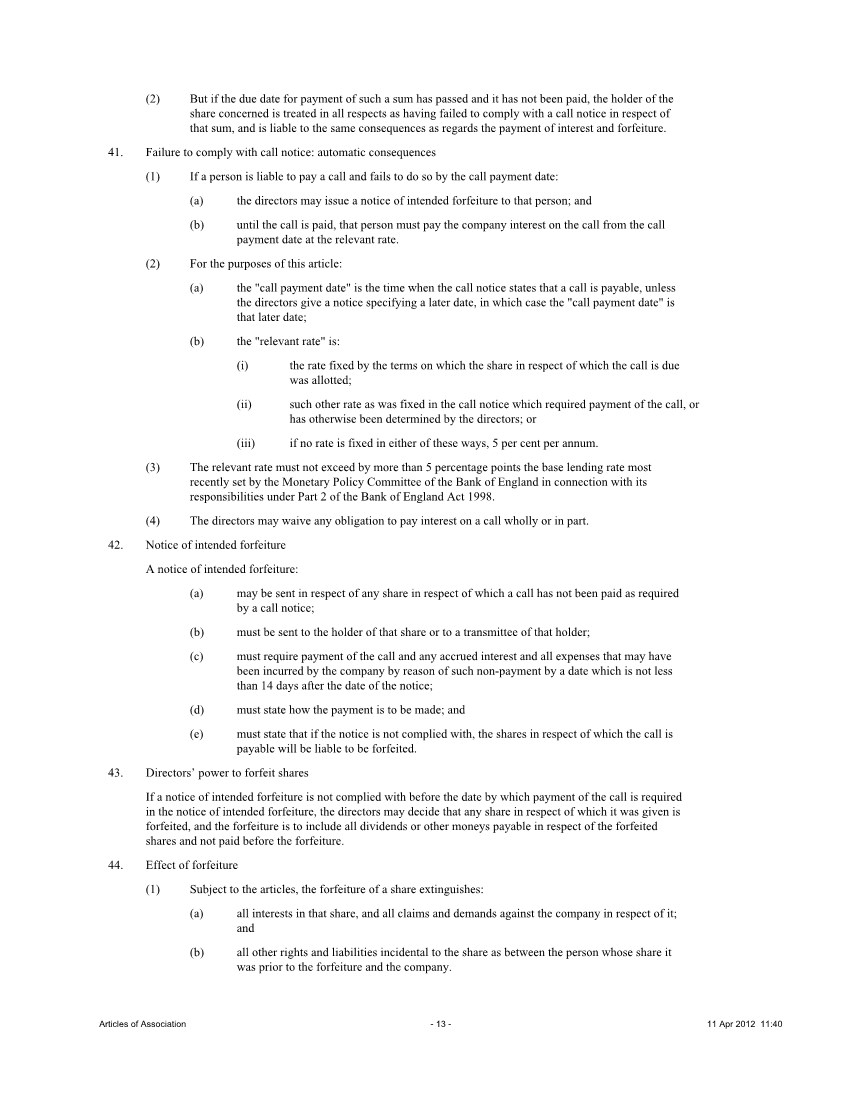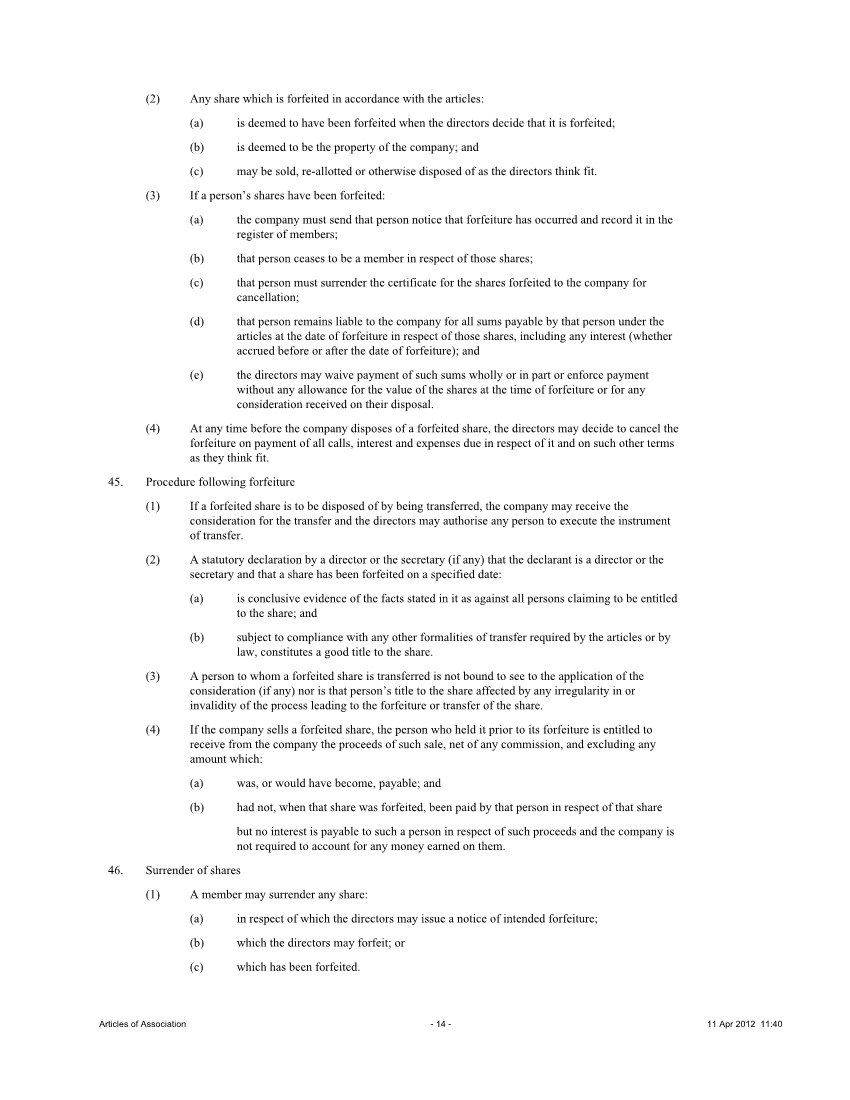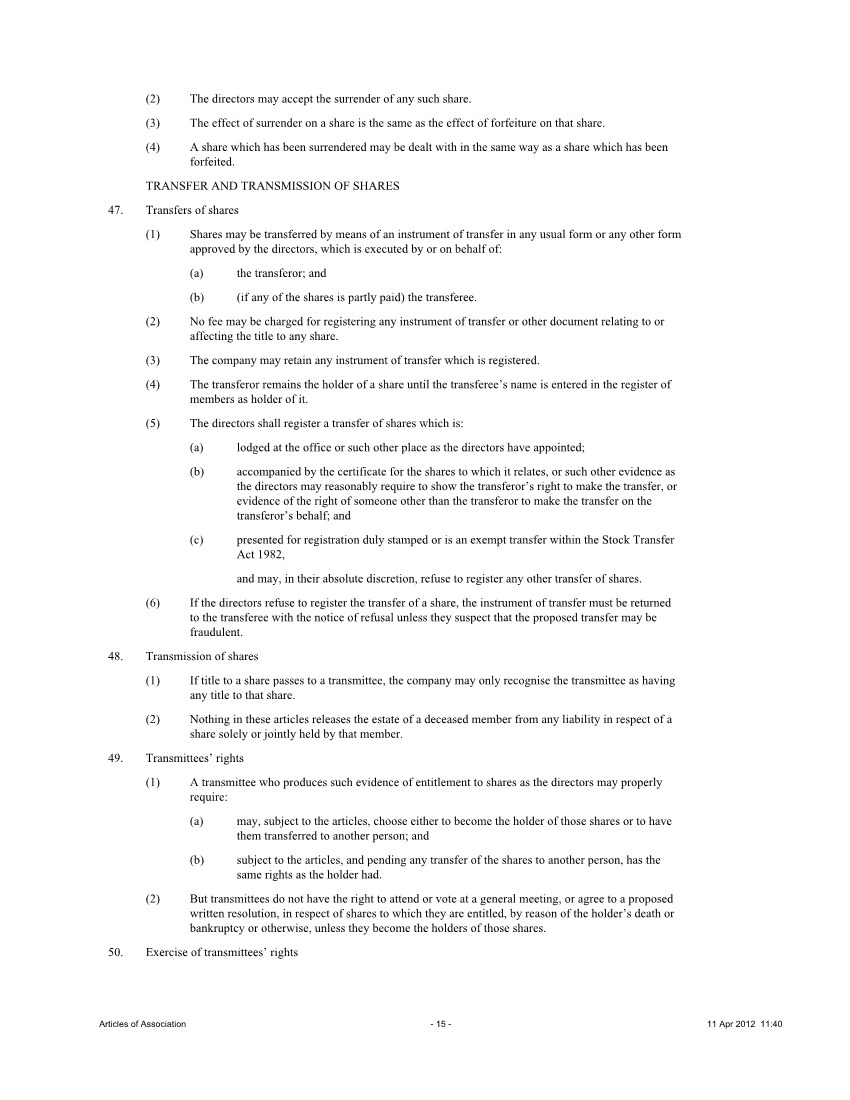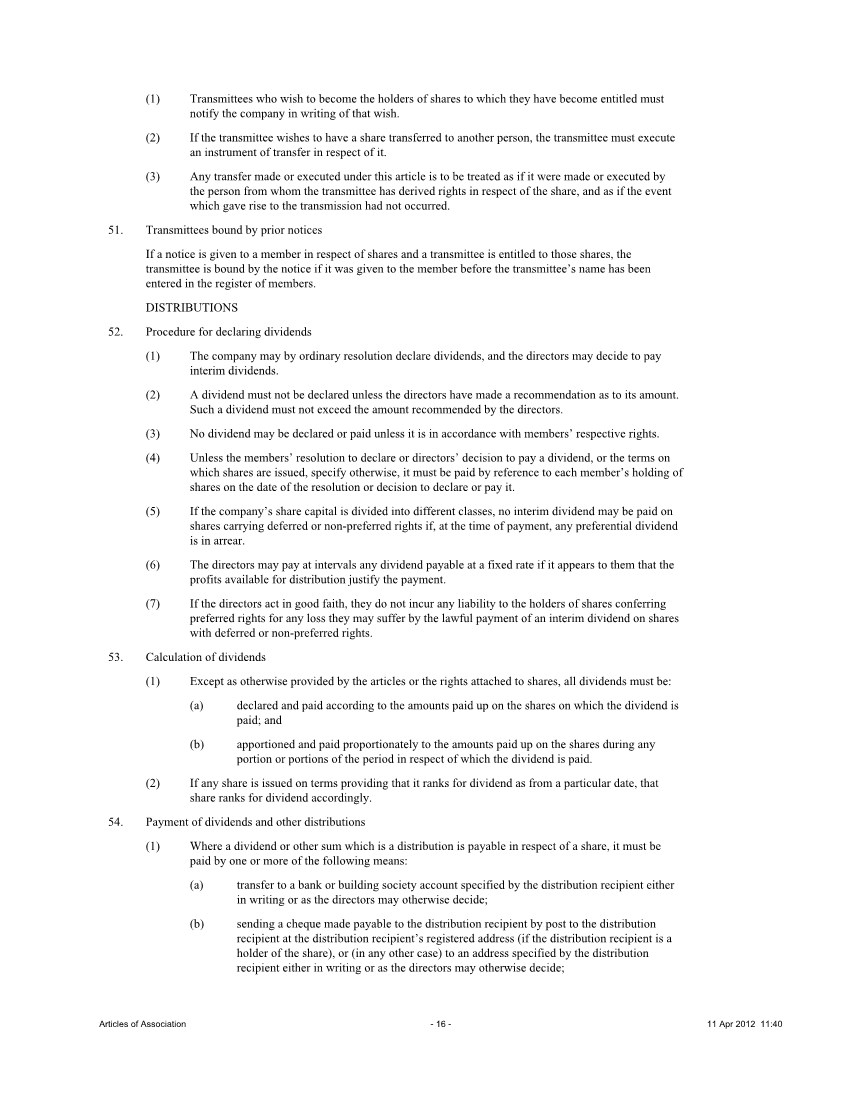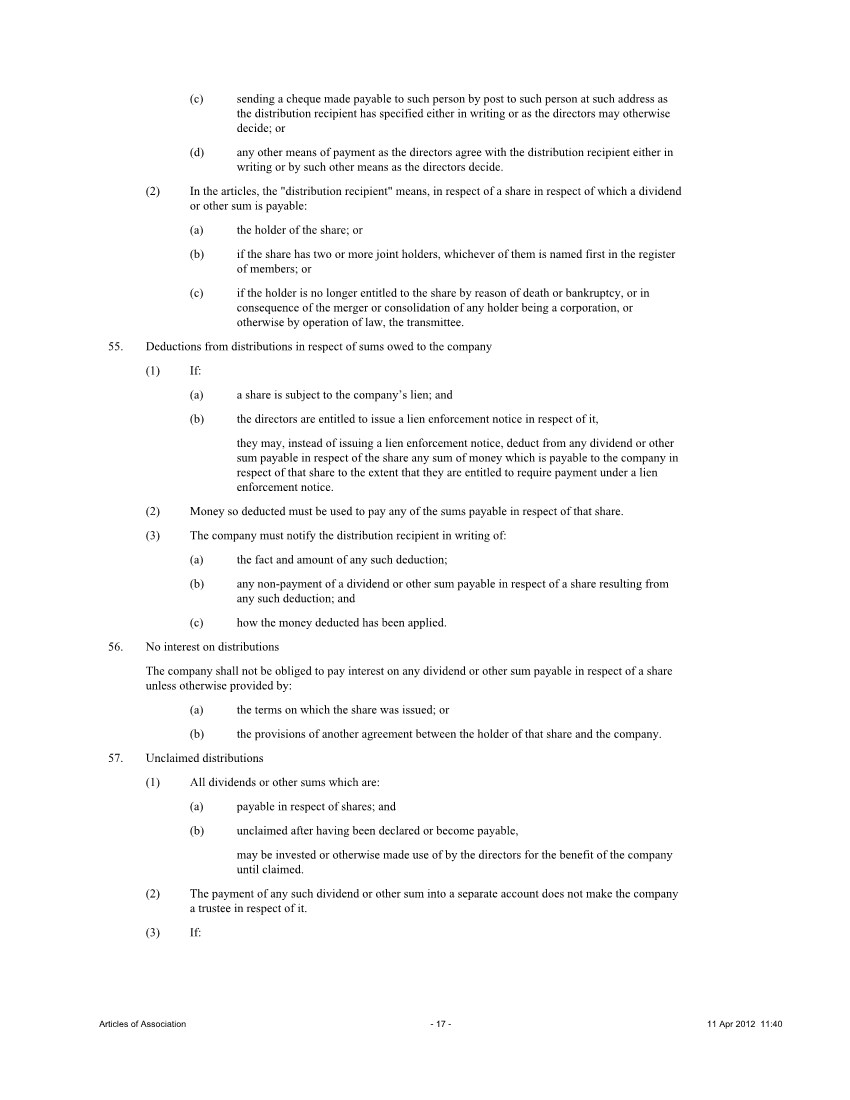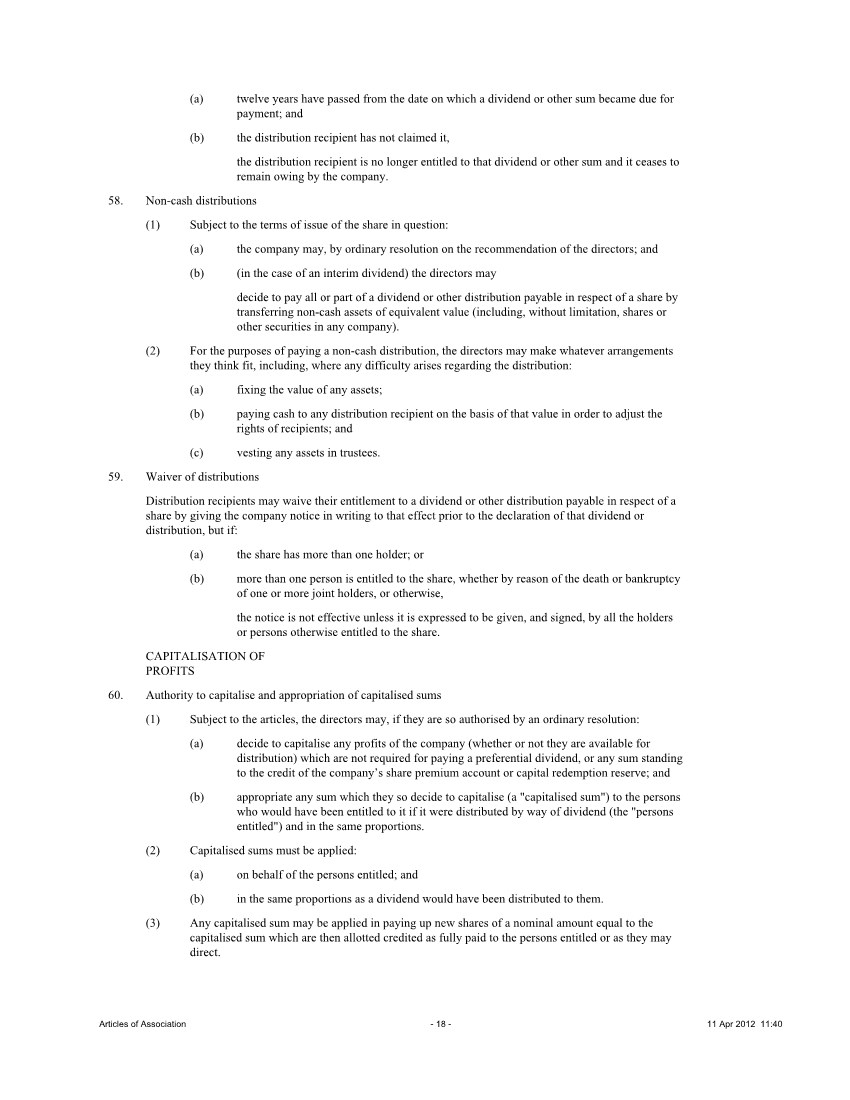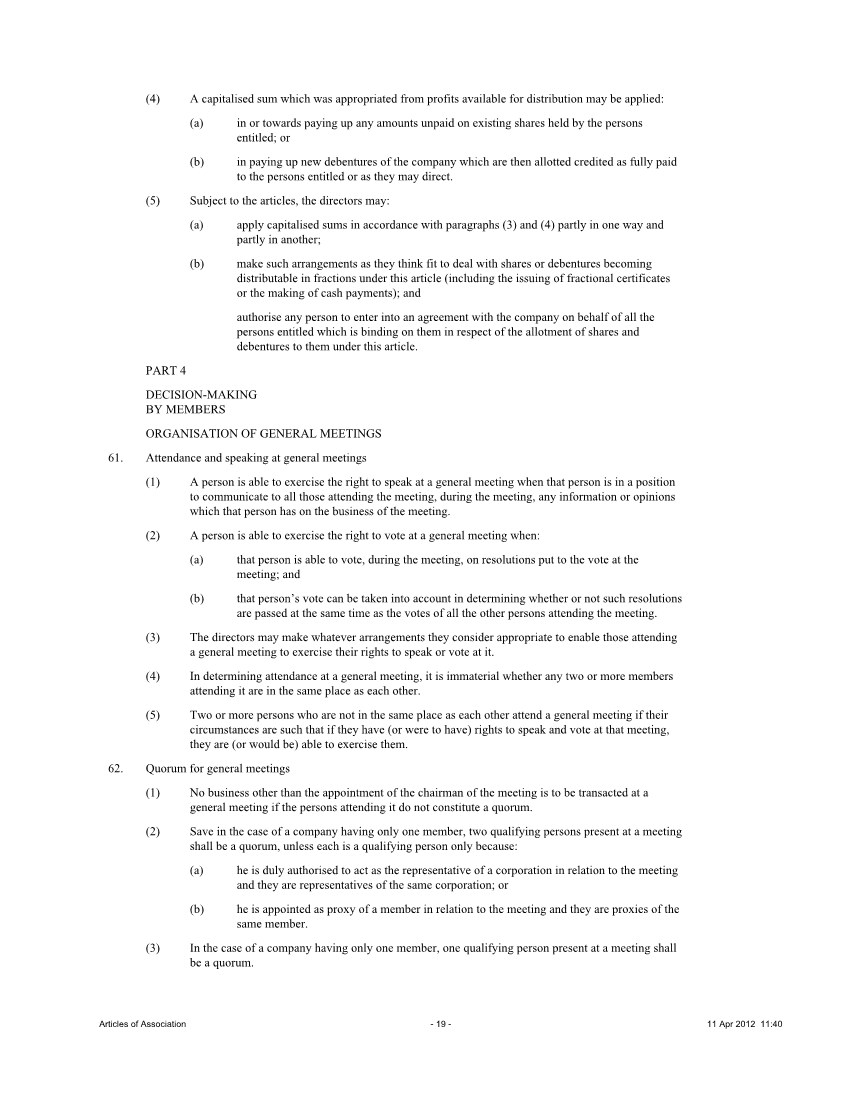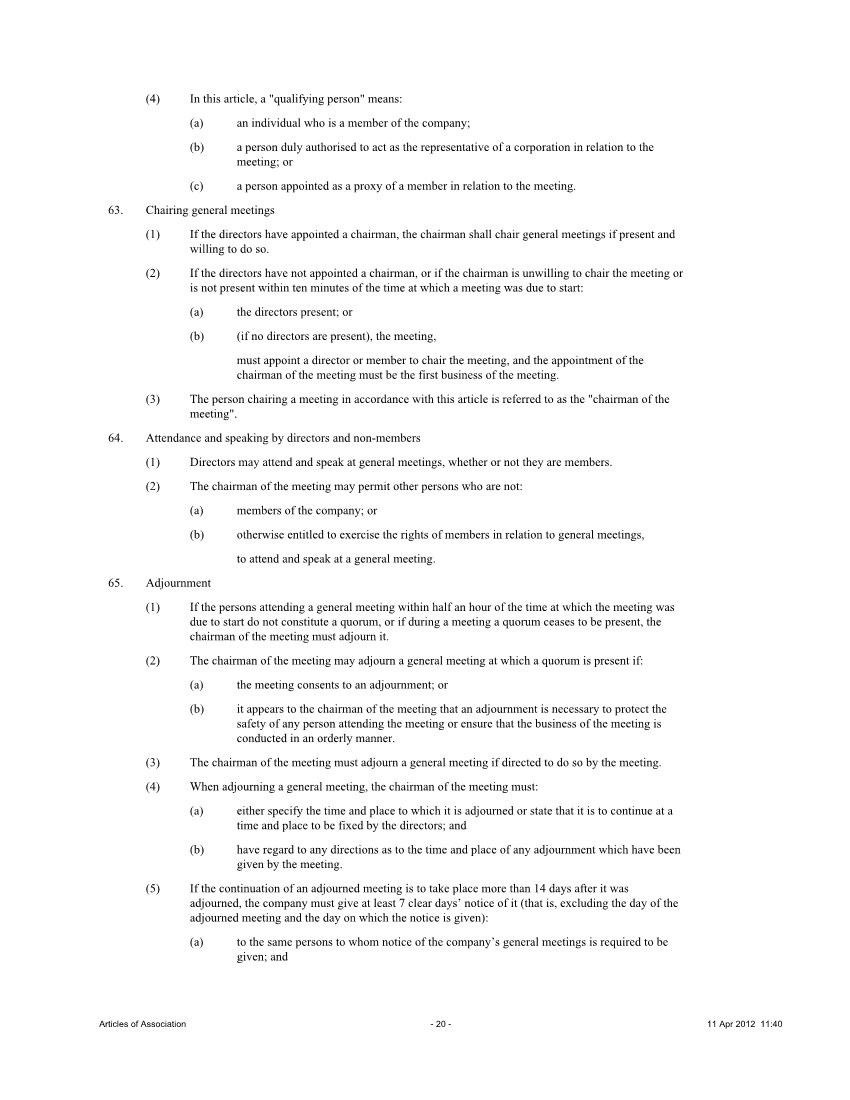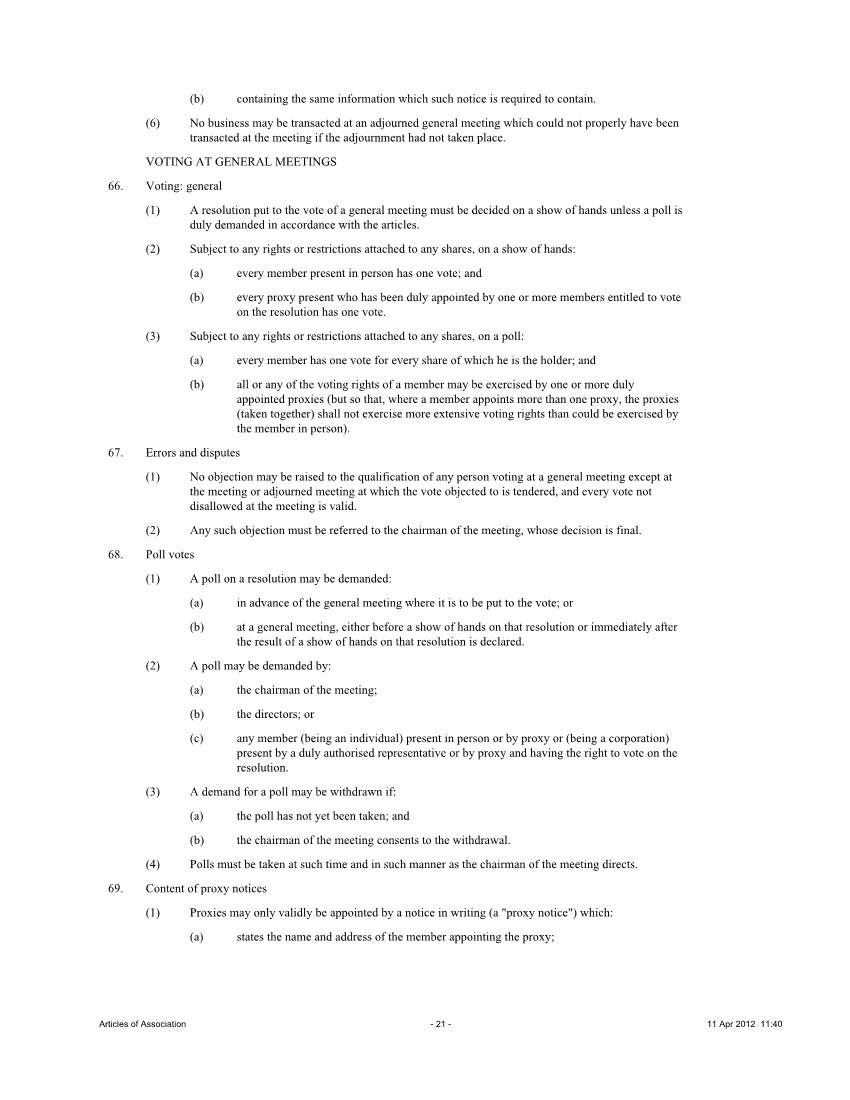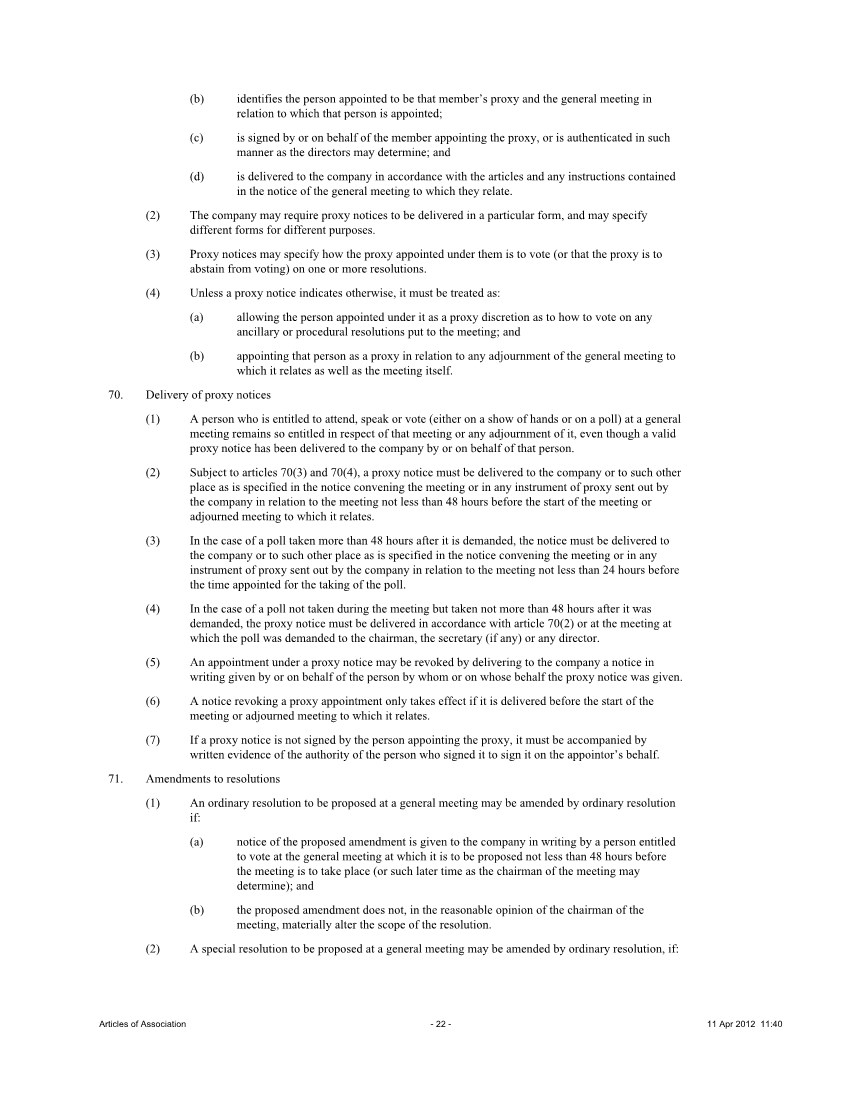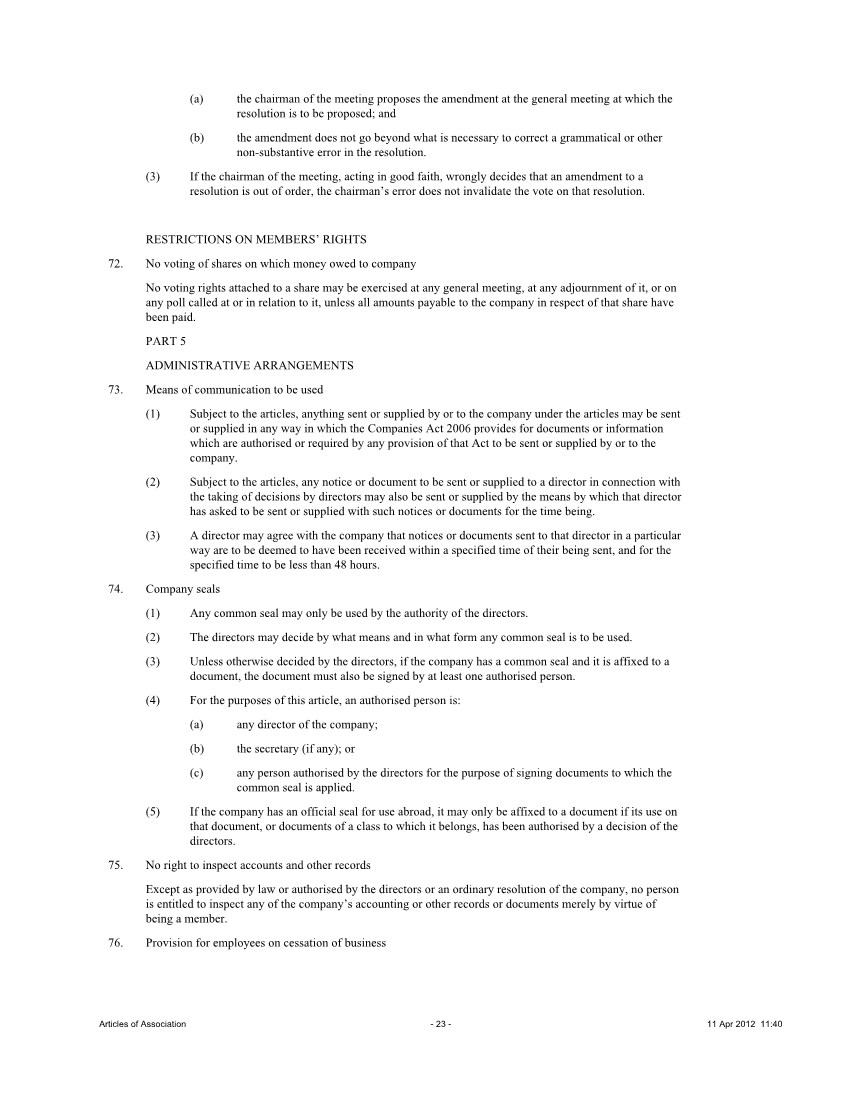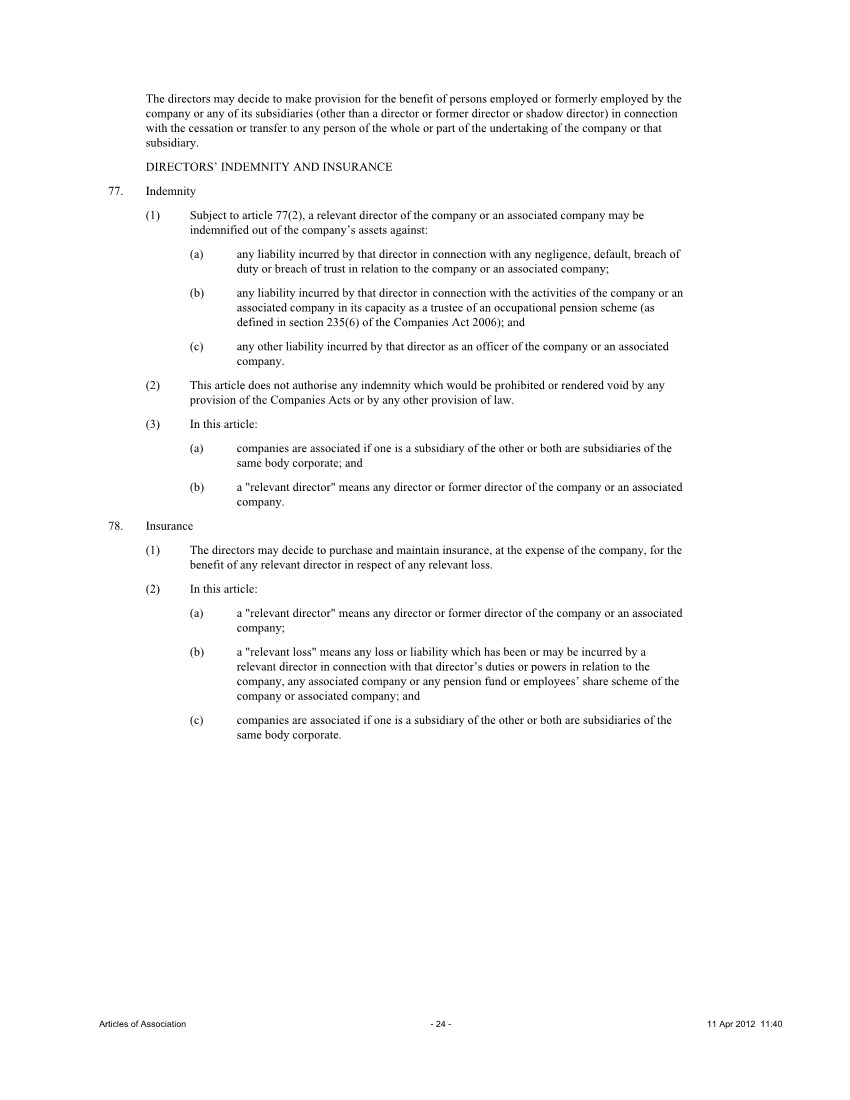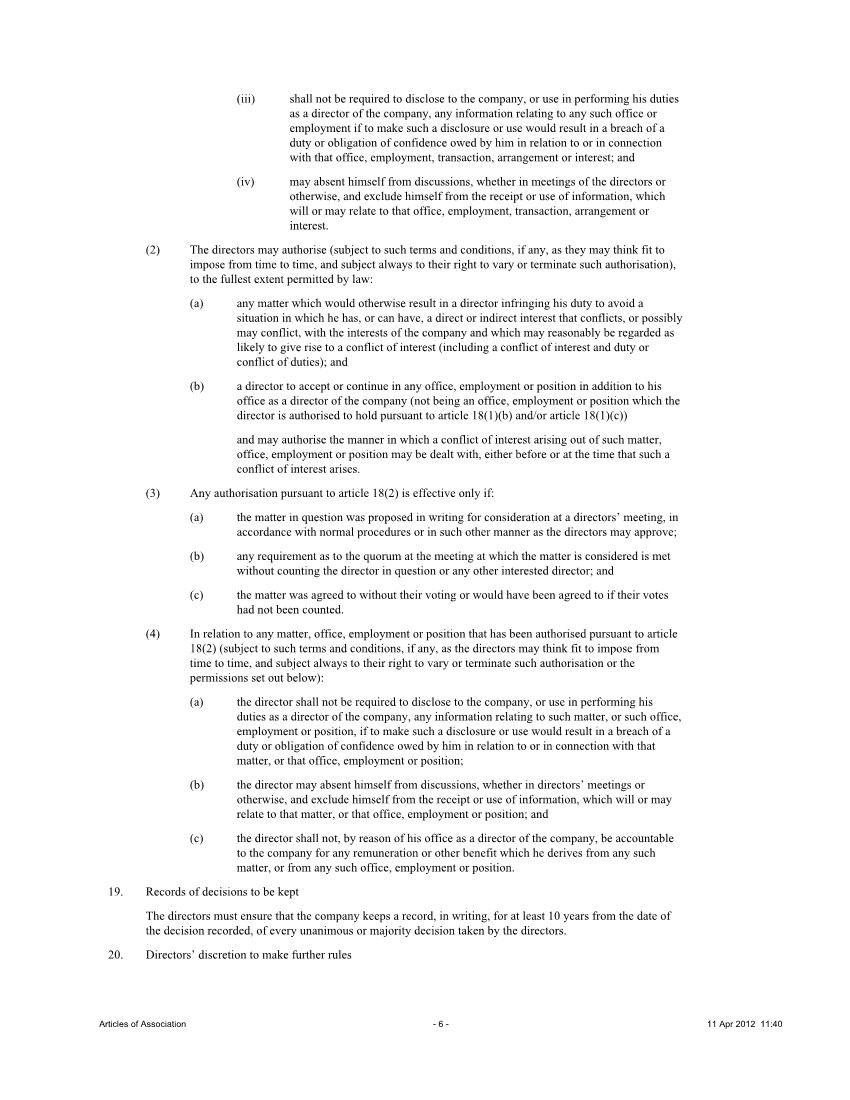
| (iii) shall not be required to disclose to the company, or use in performing his duties as a director of the company, any information relating to any such office or employment if to make such a disclosure or use would result in a breach of a duty or obligation of confidence owed by him in relation to or in connection with that office, employment, transaction, arrangement or interest; and (iv) may absent himself from discussions, whether in meetings of the directors or otherwise, and exclude himself from the receipt or use of information, which will or may relate to that office, employment, transaction, arrangement or interest. (2) The directors may authorise (subject to such terms and conditions, if any, as they may think fit to impose from time to time, and subject always to their right to vary or terminate such authorisation), to the fullest extent permitted by law: (a) any matter which would otherwise result in a director infringing his duty to avoid a situation in which he has, or can have, a direct or indirect interest that conflicts, or possibly may conflict, with the interests of the company and which may reasonably be regarded as likely to give rise to a conflict of interest (including a conflict of interest and duty or conflict of duties); and (b) a director to accept or continue in any office, employment or position in addition to his office as a director of the company (not being an office, employment or position which the director is authorised to hold pursuant to article 18(1)(b) and/or article 18(1)(c)) and may authorise the manner in which a conflict of interest arising out of such matter, office, employment or position may be dealt with, either before or at the time that such a conflict of interest arises. (3) Any authorisation pursuant to article 18(2) is effective only if: (a) the matter in question was proposed in writing for consideration at a directors’ meeting, in accordance with normal procedures or in such other manner as the directors may approve; (b) any requirement as to the quorum at the meeting at which the matter is considered is met without counting the director in question or any other interested director; and (c) the matter was agreed to without their voting or would have been agreed to if their votes had not been counted. (4) In relation to any matter, office, employment or position that has been authorised pursuant to article 18(2) (subject to such terms and conditions, if any, as the directors may think fit to impose from time to time, and subject always to their right to vary or terminate such authorisation or the permissions set out below): (a) the director shall not be required to disclose to the company, or use in performing his duties as a director of the company, any information relating to such matter, or such office, employment or position, if to make such a disclosure or use would result in a breach of a duty or obligation of confidence owed by him in relation to or in connection with that matter, or that office, employment or position; (b) the director may absent himself from discussions, whether in directors’ meetings or otherwise, and exclude himself from the receipt or use of information, which will or may relate to that matter, or that office, employment or position; and (c) the director shall not, by reason of his office as a director of the company, be accountable to the company for any remuneration or other benefit which he derives from any such matter, or from any such office, employment or position. 19. Records of decisions to be kept The directors must ensure that the company keeps a record, in writing, for at least 10 years from the date of the decision recorded, of every unanimous or majority decision taken by the directors. 20. Directors’ discretion to make further rules 11 Apr 2012 11:40 Articles of Association - 6 - |

